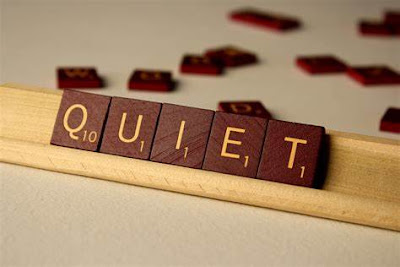Readings: 1 Sam 3:3b-10.19; Ps 40:2.4.7-10; 1 Cor 6:13c-15a.17-20; John 1:35-42
Where does Jesus stay? Our Gospel today, taken from the first chapter of John’s Gospel, prompts this question. It is the same question asked by two of John the Baptist’s disciples: presumably John and certainly Andrew. It is the question they ask in response to the question Jesus asked them when he said, “What are you looking for?”
Could it be that these two men were looking for a place to stay, somewhere to live? Or, rather, was it the case they were seeking how to live and with whom to live the life they were longing for? After all, how you live is very much shaped by those with whom you live.
Where does Jesus stay, where does he live? By the power of the Holy Spirit, Jesus desires to live in you, to dwell in your heart. From your heart, which governs your actions and words, the Lord longs to be made known to others, to say to them too “Come, and you will see.”
Believe it or not, Jesus stays with and in his Church, which is the sacrament of salvation in and for the world. In its simplest formulation, a sacrament is a visible and tangible sign of Christ’s presence in and for the world. We even go so far as to say that one of the four “marks” of the Church, in addition to being one, catholic, and apostolic, is that it is “holy.”
In recent decades it seems to many almost a joke to insist that the Church is holy. Far from being hardhearted or ignorant, many who scoff at such a seemingly outlandish claim do so in light of the Church’s manifest unholiness. It is important, very important, that we understand the Church’s holiness, like any personal holiness we may attain, flows from Christ by the power of the Holy Spirit.
In the Mass, the Offertory ends with the celebrant inviting those assisting to pray that our meager offerings of bread and wine be accepted by God. In response, all say:
May the Lord accept the sacrifice at your hands for the praise and glory of his name, for our good and the good of all his holy Church1
Collectively, it is by, in, and through our participation in the Eucharist that we are made the body of Christ by the Holy Spirit. Our reception of this sacrament, especially when received intentionally and with preparation, is an outpouring of God’s grace. Christ is holy. He desires to make us holy. The main and most effective means for imbuing us with grace are the sacraments, especially the Eucharist.
It has been noted, perhaps
ad nauseam: the Eucharist makes the Church, and the Church makes the Eucharist. In his first letter to the Church in ancient Corinth, before writing what we call the “Institution Narrative,” Saint Paul tells these Christians- “For I received from the Lord what I also handed on to you.”
2
Instituted by Christ himself, the Eucharist makes the Church. The Church’s perpetual observance of what Christ instituted is the Church making the Eucharist. “For as often as you eat this bread and drink the cup,” the apostle continues, “you proclaim the death of the Lord until he comes.”
3
This brings us to the very last part of our Gospel today, where Jesus tells Simon, son of Jonah, that henceforth he would be called “Cephas,” which is Aramaic for rock or stone. The inspired author translates that into the Greek “Petros,” which translates into Peter.
We know that Peter did not become perfect, that is, all holy in that moment when Jesus renamed him, thus choosing him. In fact, it is toward the end of John’s Gospel that the resurrected Jesus asks a dejected Peter three times with increasing intensity if he loves him. Why three times? Probably because during his Passion, Peter denied him three times.
4 We can see this episode as something akin to the Sacrament of Penance, of confession.
This, my friends, is the pattern of holiness. The late Eugene Peterson beautifully described Christian discipleship by borrowing and baptizing something first written by Frederich Nietzsche: “a long obedience in the same direction.”
5 Our direction is where the Lord is staying. Jesus doesn’t just point in that direction, he accompanies us on our journey, just as we are to be companions to one another. Etymologically, “companions” refers to those with whom we share bread. There is a reason we call the Eucharist "food for the journey."
Where and what the Lord wants each one of us to be is the kingdom of God. Our path is uneven, most of us at times waver, some wander off, and at times we regress or simply stop tired of the journey, which can sometimes seem futile. It is fashionable to quote Tolkein’s line “not all who wander are lost.”
6
Citing this phrase strikes me as the new version of “My karma ran over your dogma.” I don’t know about you, but I’ll take grace over karma any day. Tolkien’s phrase contains an implication: some who wander do, indeed, get lost, while others remain content to merely wander. Being a Christian means being a pilgrim and a member of a pilgrim people. Being on pilgrimage is not to wander but to have a destination, a destiny.
Discouragement is not despair. We all get discouraged at times, discouraged with ourselves, with others, with “the Church,” by which we mean the hierarchy. There is a fundamental error in reducing the Church to the hierarchy. The Church of Christ is all of us. This is why it is good news to hear talk these days of “co-responsibility” in and for the Church. Besides, like Peter, our leaders, too, sometimes fail, just as we sometimes fail.
It is even the case that we can become discouraged with God. This is why we must bear in mind that God’s ways are not our ways. I realize that can be cold comfort at times. But why else would God allow his chosen people not once, but twice, to be conquered and led into exile? Why do the scriptures teach from beginning to end that it was “necessary that the Messiah should suffer these things and enter into his glory.”
7
That all have sinned is a fundamental statement of Christian belief, a dogma, a matter of divine revelation (and also of human and personal experience).
8 Is there something, someone greater than our sins? The good news is the answer to this question is an emphatic “Yes!” Jesus Christ, the one who bids you to come and see for yourself and to experience what has been described as “a joy in the journey.”
9
1 Roman Missal. The Order of Mass, sec. 29.↩
2 1 Corinthians 11:23-25.↩
3 1 Corinthians 11:26.↩
4 See John 21:15-19.↩
5 Frederich Nietzsche. Beyond Good and Evil, Chapter V. “The Natural History of Morals;” Eugene Peterson (book title). A Long Obedience in the Same Direction.↩
6 JRR Tokien. The Fellowship of the Ring, Book 1, Chapter 10 "Strider" and Book 2, Chapter 2 "The Council of Elrond."↩
7 See Luke 24:13-35.↩
8 Romans 3:23.↩
9 Michael Card, "There is a Joy in the Journey."↩














